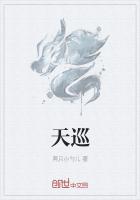An overmastering desire to reveal the humbler immigrant parents to their own children lay at the base of what has come to be called the Hull-House Labor Museum. This was first suggested to my mind one early spring day when I saw an old Italian woman, her distaff against her homesick face, patiently spinning a thread by the simple stick spindle so reminiscent of all southern Europe. I was walking down Polk Street, perturbed in spirit, because it seemed so difficult to come into genuine relations with the Italian women and because they themselves so often lost their hold upon their Americanized children. It seemed to me that Hull-House ought to be able to devise some educational enterprise which should build a bridge between European and American experiences in such wise as to give them both more meaning and a sense of relation. I meditated that perhaps the power to see life as a whole is more needed in the immigrant quarter of a large city than anywhere else, and that the lack of this power is the most fruitful source of misunderstanding between European immigrants and their children, as it is between them and their American neighbors; and why should that chasm between fathers and sons, yawning at the feet of each generation, be made so unnecessarily cruel and impassable to these bewildered immigrants? Suddenly I looked up and saw the old woman with her distaff, sitting in the sun on the steps of a tenement house. She might have served as a model for one of Michelangelo's Fates, but her face brightened as I passed and, holding up her spindle for me to see, she called out that when she had spun a little more yarn, she would knit a pair of stockings for her goddaughter.
The occupation of the old woman gave me the clue that was needed.
Could we not interest the young people working in the neighborhood factories in these older forms of industry, so that, through their own parents and grandparents, they would find a dramatic representation of the inherited resources of their daily occupation. If these young people could actually see that the complicated machinery of the factory had been evolved from simple tools, they might at least make a beginning toward that education which Dr. Dewey defines as "a continuing reconstruction of experience." They might also lay a foundation for reverence of the past which Goethe declares to be the basis of all sound progress.
My exciting walk on Polk Street was followed by many talks with Dr. Dewey and with one of the teachers in his school who was a resident at Hull-House. Within a month a room was fitted up to which we might invite those of our neighbors who were possessed of old crafts and who were eager to use them.
We found in the immediate neighborhood at least four varieties of these most primitive methods of spinning and three distinct variations of the same spindle in connection with wheels. It was possible to put these seven into historic sequence and order and to connect the whole with the present method of factory spinning.
The same thing was done for weaving, and on every Saturday evening a little exhibit was made of these various forms of labor in the textile industry. Within one room a Syrian woman, a Greek, an Italian, a Russian, and an Irishwoman enabled even the most casual observer to see that there is no break in orderly evolution if we look at history from the industrial standpoint; that industry develops similarly and peacefully year by year among the workers of each nation, heedless of differences in language, religion, and political experiences.
And then we grew ambitious and arranged lectures upon industrial history. I remember that after an interesting lecture upon the industrial revolution in England and a portrayal of the appalling conditions throughout the weaving districts of the north, which resulted from the hasty gathering of the weavers into the new towns, a Russian tailor in the audience was moved to make a speech. He suggested that whereas time had done much to alleviate the first difficulties in the transition of weaving from hand work to steam power, that in the application of steam to sewing we are still in our first stages, illustrated by the isolated woman who tries to support herself by hand needlework at home until driven out by starvation, as many of the hand weavers had been.
The historical analogy seemed to bring a certain comfort to the tailor, as did a chart upon the wall showing the infinitesimal amount of time that steam had been applied to manufacturing processes compared to the centuries of hand labor. Human progress is slow and perhaps never more cruel than in the advance of industry, but is not the worker comforted by knowing that other historical periods have existed similar to the one in which he finds himself, and that the readjustment may be shortened and alleviated by judicious action; and is he not entitled to the solace which an artistic portrayal of the situation might give him? I remember the evening of the tailor's speech that I felt reproached because no poet or artist has endeared the sweaters' victim to us as George Eliot has made us love the belated weaver, Silas Marner. The textile museum is connected directly with the basket weaving, sewing, millinery, embroidery, and dressmaking constantly being taught at Hull-House, and so far as possible with the other educational departments; we have also been able to make a collection of products, of early implements, and of photographs which are full of suggestion. Yet far beyond its direct educational value, we prize it because it so often puts the immigrants into the position of teachers, and we imagine that it affords them a pleasant change from the tutelage in which all Americans, including their own children, are so apt to hold them.













